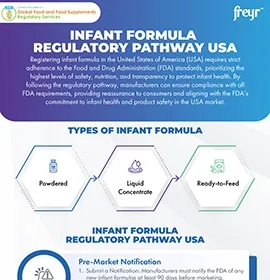Understanding the EU Deforestation Regulations (EUDR)
The EUDR aims to control deforestation by regulating the trade of commodities associated with deforestation and forest degradation. The regulation mandates that businesses exercise due diligence to ensure their supply chains are free from deforestation-linked products.
EUDR Key Commodities
Cattle and derived products (e.g., beef, leather)
Cocoa and derived products (e.g., chocolate)
Coffee and derived products
Oil Palm & derived products (e.g., palm oil, palm kernel oil)
Soy and derived products (e.g., soybeans, soy oil, soy protein)
Rubber and derived products
Wood & derived products (e.g., timber, paper, wood pulp, cardboard, wooden crates)
Key Obligations Under EUDR
![Facility Registration]()
Due Diligence
Businesses must implement robust due diligence systems to trace and verify the origin of their commodities. This involves risk assessment, mitigation measures, and reporting on the findings.
![Product Listing]()
Risk Assessment
Food companies are required to assess the risk of deforestation in their supply chains and take appropriate actions to minimize these risks.
![Safety Substantiation]()
Compliance Reporting
Annual reporting to the authorities on due diligence activities and the status of compliance is mandatory.
Important Timelines
- 29-Jun-2023
- 30-Dec-2025
- 30-Jun-2026
- 2026-2028
The EUDR was officially adopted.
The EUDR comes into force. From this date, businesses must comply with the new due diligence and reporting requirements outlined by the regulation.
The date of application for micro and small enterprises.
Review period where the European Commission (EC) will assess the implementation of the EUDR and its impact, making adjustments as necessary.
How Can Freyr Help?
At Freyr, we specialize in Regulatory compliance and offer comprehensive services to help you navigate the complexities of the EUDR. Our services include:
![Facility Registration]()
Due Diligence Implementation
- Develop and implement due diligence systems to identify, assess, and mitigate deforestation risks.
- Assess suppliers to ensure EUDR compliance.
- Trace the origin of raw materials to confirm they are not from deforested areas.
![Product Listing]()
Risk Assessment and Mitigation
- Conduct risk analysis to identify high-risk areas and suppliers.
- Develop and implement plans to mitigate identified risks.
- Collaborate with suppliers to improve practices.
![Safety Substantiation]()
Compliance Reporting
- Maintain documentation and records to demonstrate EUDR compliance.
- Prepare and submit required reports to authorities, ensuring Regulatory standards are met.
![Safety Substantiation]()
Training and Support
- Provide training on EUDR requirements and due diligence procedures.
- Educate suppliers on EUDR compliance and sustainable sourcing best practices.
Prepare your food business for the upcoming EU Deforestation Regulations EUDR and avoid potential disruptions in the EU markets.
Get in touch with us today to discover how we can help you meet your compliance obligations.
Frequently Asked Questions (FAQs) on EUDR
We are here to provide you with the information you need quickly and efficiently.
01. What is the EU Deforestation Regulation (EUDR)?
The EUDR is a new regulation that requires business operators in the EU to prove that their products containing specific commodities are deforestation-free. It will come into force on December 30, 2024.
02. Which commodities are affected by the EUDR?
The regulation covers commodities such as soy, beef, palm oil, wood, coffee, cocoa, and rubber.
03. What does the EUDR require from businesses?
Businesses must issue a due diligence statement establishing negligible deforestation risk in their supply chain since December 2020. They must also prove that the products were grown legally according to local land rights and other regulations.
04. How will the EUDR change business operations?
Complying with EUDR requires significant changes in business operations, including extensive data collection and supply chain transparency. For example, businesses need to provide geolocation data for every farm plot that contributes to shipments.
05. What are the potential impacts on coffee and cocoa pricing?
Due to the high volume of coffee and cocoa crossing EU borders, non-compliant shipments will need to seek alternative markets, potentially trading at a significant discount. This could adversely affect the prices of these commodities.
06. What are the penalties for non-compliance with the EUDR?
If a business is found non-compliant, it will lose the entire affected parcel of goods and could be fined up to 4% of its annual turnover in Europe.
07. Is the UK implementing a similar regulation?
The UK is expected to implement its version, known as the Forest Risk Commodities regulations. While not identical, complying with EUDR will help operators adhere to the UK law.
08. What are the key deadlines for EUDR compliance?
The EUDR comes into force on December 30, 2024. Businesses need to collect all necessary data and have their due diligence and traceability systems in place by then.
09. Will enforcement authorities be ready by the deadline?
There is uncertainty about whether national competent authorities will be ready to enforce the regulation by December 30, 2024. It is possible that operators may be granted an additional year to comply.
10. What should businesses do to prepare for EUDR compliance?
Businesses should start collecting relevant data, conducting risk assessments, and implementing traceability systems immediately to ensure compliance with the EUDR.
 Cattle and derived products (e.g., beef, leather)
Cattle and derived products (e.g., beef, leather) Cocoa and derived products (e.g., chocolate)
Cocoa and derived products (e.g., chocolate) Coffee and derived products
Coffee and derived products Oil Palm & derived products (e.g., palm oil, palm kernel oil)
Oil Palm & derived products (e.g., palm oil, palm kernel oil) Soy and derived products (e.g., soybeans, soy oil, soy protein)
Soy and derived products (e.g., soybeans, soy oil, soy protein) Rubber and derived products
Rubber and derived products Wood & derived products (e.g., timber, paper, wood pulp, cardboard, wooden crates)
Wood & derived products (e.g., timber, paper, wood pulp, cardboard, wooden crates)










